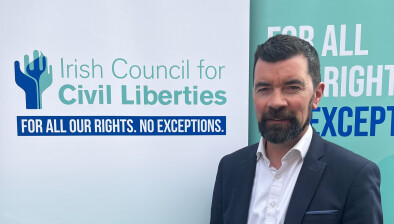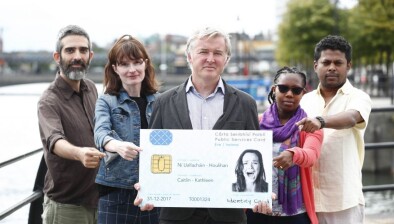Disappointment over government’s looming GDPR court battle

Olga Cronin
The Department of Social Protection has been criticised for launching High Court proceedings in a response to a €550,000 fine for breaching the GDPR.
The Data Protection Commission (DPC) last month announced its decision that the Department had failed to identify a valid legal basis for collecting biometric data from public services card (PSC) applicants.
It said at the time that it would publish the full decision and further related information “in due course”.
On Monday, the Department launched legal proceedings to overturn the DPC’s decision, saying it believed its processing of biometric data “is compliant with data protection law”.
The Irish Council for Civil Liberties (ICCL) has criticised the Department for taking legal action and has urged the DPC to publish its decision in full as a matter of public interest.
Olga Cronin, ICCL’s senior policy officer for human rights and surveillance, said the decision was “deeply disappointing and triggers a strong sense of déjà vu, given its attempt to challenge the DPC in 2019, only to withdraw that appeal two years later”.
She added: “We’ve waited years for this decision from the DPC on the biometric element of the card. The State should not now start a costly legal battle at taxpayers’ expense to continue its unlawful biometric data processing.
“This is a matter of significant public interest. The DPC should immediately publish its decision in full.”
The DPC’s inquiry, which began in July 2021, examined the processing of biometric facial templates, and usage of associated facial matching technologies, as part of the “SAFE 2 registration” that forms part of the PSC application process.
SAFE 2 registration is mandatory for anyone who wishes to apply for a public services card. Those who do not submit to such processing cannot access services including welfare payments.
In addition to the administrative fine of €550,000, the DPC ordered the Department to cease processing of biometric data in connection with SAFE 2 registration within nine months of the decision if it cannot identify a valid lawful basis.










